Nigeria
A show of horsemanship.
The end of the Eid al Adha in Nigeria is being celebrated with a mix of religious and equestrian festivities known as The Durbar festival.
Eid al-Adha marks the culmination of the Hajj.
The festival takes place in several states mainly in the northern of the country.
The annual festival begins with prayers, followed by a parade of men dressed in traditional clothing, riding their decorated horses.
Dozens of horse riders from different regions gather in Bida, Niger state.
"For several years, I have ridden horses in many cities around many emirates (local kingdoms) where Barikin is being practiced. I have been the number one horse rider here in the Nupe kingdom for the past five years, and the last time I went to ride a horse in Sokoto I won several gifts," explains horse ride Muhammad Zango.
This year, due to the recent death of one of the custodians of the race in Bida, the celebration was reduced from four to one day.
The Durbar is celebrated in Bida but also in cities like Kano, Katsina, Sokoto, and Zazzau.
The practice dates back over 200 years but some people believe it has been celebrated by the residents of that region since the 14th century.
"Today particularly, we call it Barikin Day, it signifies the end of Sallah (Eid al Adha) festive period this has been on for several decades. During the colonial rule, there used to be an order where the Emir would take a horse back from his Palace to the residents of the colonial masters in those days, to pay homage, you know, as part of the festivity. And this has been on since the colonial era," explains the horse riders' leader, Alhaji Mustapha Abubakar-Bida.
The procession goes through some streets of the city to the Emir's palace.
"Well, I feel honoured first of all, because is a family treat, we all love riding horse from little kids. So, whenever we grow up we see ourselves riding horse during the Sallah is an honour for us. Like, the joy you feel is different, you feel like you are on top of the world, yeah," explains Ibrahim Ahmad, a horse rider visiting from Kano state.
The horse culture celebrated during the Durbar festival, is also a show of strength, according to Abubakar-Bida.Horses have played a significant role for centuries in warfare.
"You know, horse riding traditionally it's very very significant, the horse signifies your strength. During the war it's by the number of horses that you have that you shows the number of strength you can portray, and then, you know, in the old days the Nupe people have always been warriors," says Ahmad.




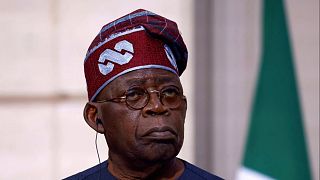

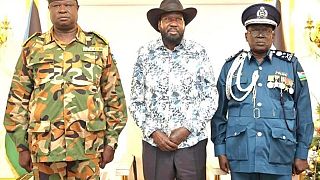
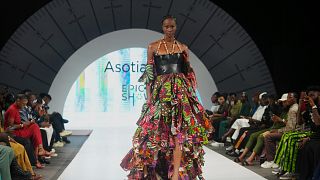
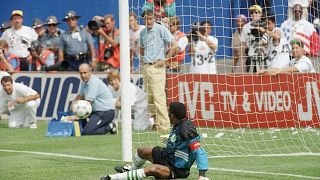
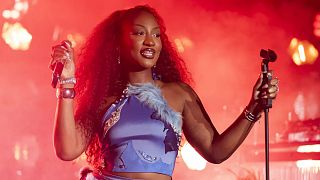

01:06
Brazil launches major security operation ahead of BRICS Summit
Go to video
Paraguayan town celebrates vibrant Kamba Ra'anga festival with masks, fire and tradition
11:15
AI drones lead breakthrough against malaria in Africa [Business Africa]
01:13
17 soldiers killed as gunmen raid army bases in northern Nigeria
02:18
Netherlands returns 119 artifacts looted from Nigeria